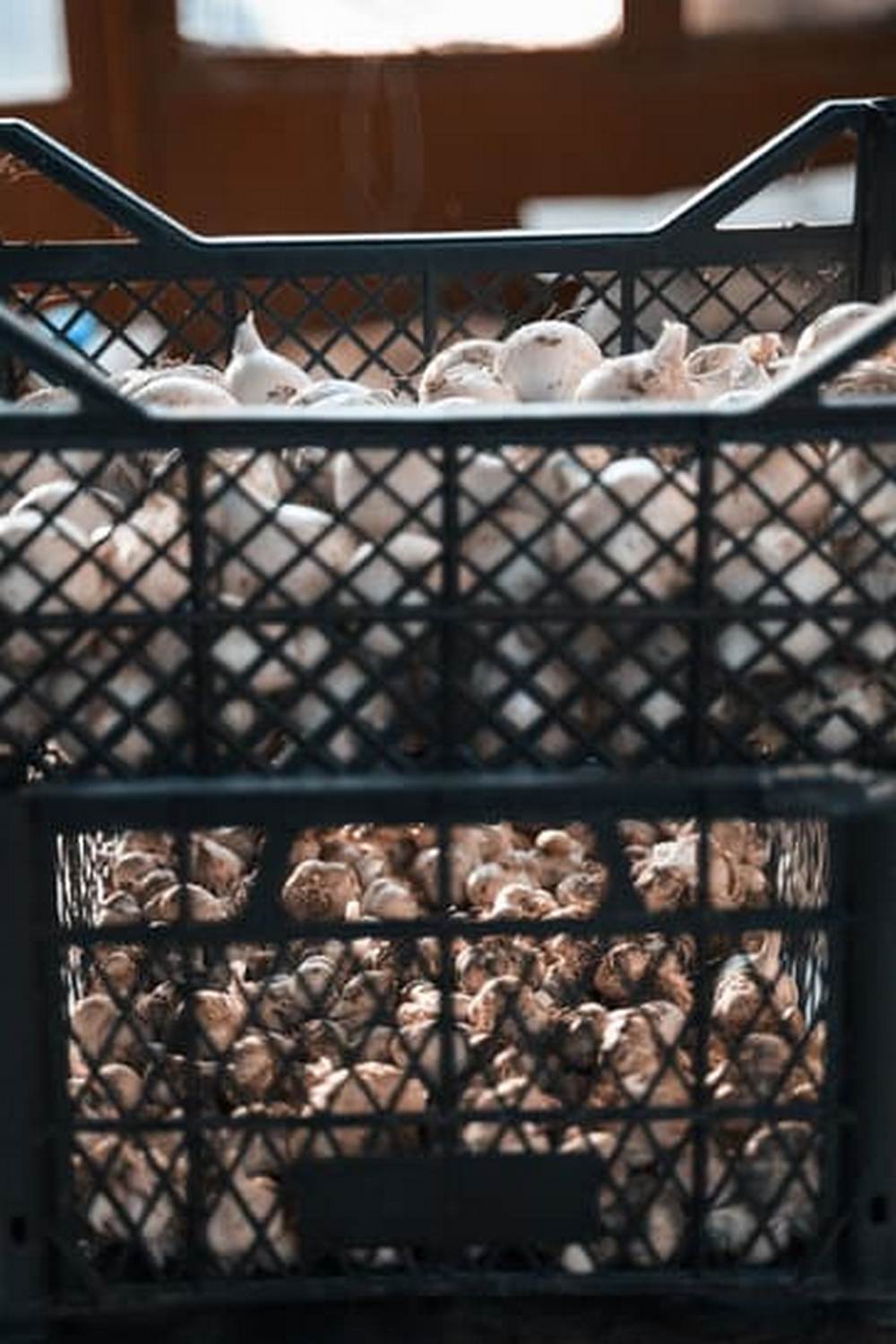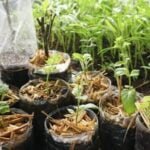If you have ever wondered what kind of flying insect attacks vegetable gardens, you are not alone. This article aims to provide insight into the various pests that can pose a threat to your vegetable garden and how to identify them. Understanding the potential threats is crucial in order to take proactive measures to protect your crops and ensure a bountiful harvest.
Vegetable gardens are often targets for a variety of flying insect pests that can wreak havoc on your crops if left unchecked. These pests can cause extensive damage, leading to reduced yields and even the loss of entire plants. By identifying these common flying insect pests and understanding their destructive impact, you can implement effective strategies to protect your vegetable garden.
In this article, we will explore the destructive impact of flying insect attacks on vegetable crops, as well as natural and organic methods for controlling these pests. Additionally, we will discuss chemical control options and how to attract beneficial insects that can help manage flying insect populations in your vegetable garden. By gaining a thorough understanding of the threats posed by flying insect pests, you can take proactive steps to safeguard your vegetable garden and promote healthy plant growth.
Identifying Common Flying Insect Pests in Vegetable Gardens
Common Culprit: Aphids
One of the most common flying insect pests that can wreak havoc on your vegetable garden is the aphid. These tiny insects can appear in a variety of colors, including green, black, and red. They feed on the sap of plants, causing wilting, stunted growth, and even the transmission of plant diseases. The presence of aphids can be identified by the sticky honeydew they leave behind on leaves and stems, as well as distorted or discolored foliage.
Notorious Nuisance: Whiteflies
Another problematic flying insect pest for vegetable gardens is the whitefly. These small, white insects are often found congregating on the undersides of leaves and can cause damage by feeding on plant sap. Infestations can lead to yellowing, wilting, and reduced crop yield. Additionally, whiteflies are capable of transmitting plant viruses, further endangering your vegetable crops.
Pesky Predators: Leafminers
Leafminers are another flying insect pest that can attack vegetable gardens. These tiny maggots feed on leaf tissue and create winding tunnels throughout leaves as they eat. This feeding activity can cause unsightly damage to plant foliage and compromise overall plant health. Identifying these pests may require closer inspection of plants for the distinct trails left behind by leafminer larvae.
Knowing which flying insect pests are likely to target your vegetable garden is crucial for early detection and effective pest management strategies. By familiarizing yourself with these common culprits – aphids, whiteflies, and leafminers – you can take proactive measures to protect your valuable vegetable crops from potential damage.
The Destructive Impact of Flying Insect Attacks on Vegetable Crops
What kind of flying insect attacks vegetable gardens? There are several types of flying insect pests that can wreak havoc on vegetable crops, including aphids, caterpillars, and beetles. These pests can cause extensive damage to plants by feeding on their leaves, stems, and fruits, resulting in stunted growth, decreased yield, and even the death of the plant.
Aphids are small, soft-bodied insects that suck the sap from plants and excrete a sticky substance called honeydew, which can lead to the growth of sooty mold. Caterpillars, such as cabbage loopers and corn earworms, feed on leaves and fruits, causing unsightly damage and reducing the overall quality of the crop. Beetles, including Colorado potato beetles and cucumber beetles, also pose a significant threat to vegetable gardens by chewing holes in leaves and defoliating plants.
The presence of these flying insect pests can not only result in economic losses for gardeners but also impact local ecosystems. It is essential for gardeners to be able to identify these pests in order to implement effective control measures and protect their vegetable crops from irreversible damage. By understanding the destructive impact of flying insect attacks on vegetable crops, gardeners can take proactive steps to mitigate these threats and maintain healthy garden ecosystems.
| Flying Insect Pest | Destructive Impact |
|---|---|
| Aphids | Sucking sap from plants, excreting honeydew leading to sooty mold |
| Caterpillars | Feeding on leaves and fruits causing unsightly damage |
| Beetles | Chewing holes in leaves and defoliating plants |
Attracting Beneficial Insects to Control Flying Insect Pests
Beneficial insects play a crucial role in controlling flying insect pests in vegetable gardens. By attracting these helpful insects, you can reduce the infestation of harmful pests and minimize the damage they cause to your crops. But what kind of flying insect attacks vegetable gardens, and how can beneficial insects help combat them?
One common flying insect that attacks vegetable gardens is the aphid. Aphids are small, soft-bodied insects that feed on the sap of plants, often causing stunted growth and distorted leaves. Ladybugs are natural predators of aphids and can be attracted to your garden by planting flowers such as dill, fennel, and yarrow. These flowers provide nectar and pollen for adult ladybugs and other beneficial insects while also hosting their larvae.
Another destructive flying insect pest is the cabbage moth, whose larvae (caterpillars) feed on the leaves of cabbage, kale, and broccoli plants. To attract beneficial parasitic wasps that prey on cabbage moth caterpillars, you can plant nectar-rich flowers like sweet alyssum and dill in your garden. These flowers not only attract parasitic wasps but also provide an additional food source for other beneficial insects.
Lastly, cucumber beetles are another type of flying insect that attacks vegetable gardens. These beetles feed on cucurbit plants such as squash, melons, and cucumbers, potentially transmitting bacterial wilt disease. To control cucumber beetle populations naturally, you can plant flowering herbs like oregano and thyme to attract predatory insects like soldier beetles and braconid wasps.
By strategically planting flowers that attract beneficial insects to your vegetable garden, you can create a balanced ecosystem that helps control flying insect pests without the need for chemical interventions.
| Flying Insect Pest | Beneficial Insects to Attract |
|---|---|
| Aphids | Ladybugs |
| Cabbage Moth Caterpillars | Parasitic Wasps |
| Cucumber Beetles | Soldier Beetles and Braconid Wasps |
Natural and Organic Methods for Controlling Flying Insect Pests
When it comes to controlling flying insect pests in your vegetable garden, there are natural and organic methods that can effectively help you manage the problem. These methods are not only environmentally friendly but also pose minimal risk to your plants, pets, and family members. Here are some natural and organic methods for controlling flying insect pests:
- Planting companion plants: Certain plants can act as natural repellents for flying insect pests. For example, marigolds can deter aphids, while basil can repel mosquitoes and flies. By strategically planting these companion plants throughout your vegetable garden, you can help protect your crops from flying insect attacks.
- Using row covers: Floating row covers made of lightweight material can be placed over your vegetable crops to physically prevent flying insects from reaching them. This method not only provides a physical barrier against pests but also helps protect your plants from weather-related damage.
- Introducing beneficial insects: Ladybugs, lacewings, and predatory wasps are all examples of beneficial insects that feed on common flying insect pests like aphids, caterpillars, and thrips. By attracting these beneficial insects to your garden through the use of specific plants or purchasing them from gardening suppliers, you can naturally control the population of harmful flying insects.
In addition to these natural methods, there are also organic options for controlling flying insect pests in vegetable gardens. One popular organic solution is the use of neem oil, which is derived from the seeds of the neem tree. Neem oil acts as a natural pesticide and works by disrupting the feeding and breeding patterns of various flying insect pests without harming beneficial insects or other wildlife.
Ultimately, by employing natural and organic methods for controlling flying insect pests in your vegetable garden, you can effectively manage pest populations without resorting to potentially harmful chemical pesticides. These methods not only promote a healthier environment but also contribute to the overall well-being of your vegetable crops.
Chemical Control Options for Flying Insect Pests in Vegetable Gardens
When it comes to controlling flying insect pests in vegetable gardens, some gardeners may turn to chemical control options as a last resort. While natural and organic methods are generally preferred for maintaining a healthy and eco-friendly garden, there are situations where chemical control may be necessary to combat an infestation. It is important for gardeners to understand the potential impact of using chemical control options and to use them responsibly.
Here are some common chemical control options for flying insect pests in vegetable gardens:
- Synthetic insecticides: These chemical sprays are designed to kill or repel flying insect pests such as aphids, caterpillars, and beetles. They can be effective in quickly reducing pest populations but should be used with caution due to their potential negative impact on beneficial insects and the environment.
- Insecticidal soaps: These mild pesticides are made from natural fatty acids and can effectively control soft-bodied flying insect pests like whiteflies, thrips, and spider mites. They work by suffocating the pests upon contact but pose minimal risk to humans, pets, and beneficial insects.
- Botanical insecticides: Derived from plants, botanical insecticides such as pyrethrin and neem oil offer a natural alternative to synthetic chemicals. They can be effective against a wide range of flying insect pests while minimizing harm to non-target organisms.
Before considering any chemical control option for flying insect pests in your vegetable garden, it is crucial to carefully read and follow the instructions on the product label. Additionally, it is recommended to apply pesticides during the early morning or late evening hours when pollinators are less active.
Always consider alternative methods first before resorting to chemical controls, as they should only be used as a last resort when all other options have been exhausted. What kind of flying insect attacks vegetable gardens.
Preventing Future Flying Insect Attacks in Your Vegetable Garden
When it comes to preventing future flying insect attacks in your vegetable garden, there are several proactive measures you can take to minimize the risk of infestation and protect your crops. By understanding the potential threats and implementing prevention strategies, you can create a healthier and more productive garden environment.
Choose Resistant Vegetable Varieties
One effective way to prevent flying insect attacks in your vegetable garden is by choosing plant varieties that are resistant to common pests. Look for cultivars that have natural defenses against specific insect pests, such as aphids, whiteflies, or leafhoppers. By selecting resistant varieties, you can reduce the likelihood of infestation and minimize the need for chemical intervention.
Implement Crop Rotation
Rotating your vegetable crops from one year to the next can help disrupt the life cycle of flying insect pests. By moving plants to different areas of the garden each season, you can confuse and deter pests that may be attracted to specific plant species. Additionally, rotating crops helps maintain soil health and fertility, reducing overall stress on plants and making them less susceptible to pest attacks.
Practice Good Garden Hygiene
Maintaining good garden hygiene is essential for preventing flying insect attacks in your vegetable garden. Remove any crop residues, weeds, and debris that could harbor pest populations or provide them with shelter. Regularly cultivate the soil to disrupt overwintering habitats for insects, and clean up any fallen or rotting fruits or vegetables that could attract pests. By keeping your garden tidy and free of potential insect breeding grounds, you can significantly reduce the risk of infestation.
By taking these proactive steps to prevent flying insect attacks in your vegetable garden, you can create a more resilient and thriving growing environment while minimizing the need for chemical interventions. Through careful planning and maintenance, you can enjoy healthy harvests without being plagued by destructive flying insect pests.
Conclusion
In conclusion, it is crucial for gardeners to be aware of the potential threats posed by flying insect pests to their vegetable gardens. By identifying common insects such as aphids, caterpillars, and whiteflies, gardeners can take proactive steps to protect their crops from these destructive pests. Understanding the impact of flying insect attacks on vegetable crops is essential in order to implement effective control measures.
Attracting beneficial insects such as ladybugs, lacewings, and predatory wasps can help in naturally controlling flying insect pests in vegetable gardens. Additionally, implementing natural and organic methods like companion planting, using neem oil or garlic sprays, and practicing good garden hygiene can also aid in managing these pests without resorting to chemical controls.
It is important for gardeners to consider chemical control options as a last resort due to the potential negative impact on beneficial insects and the environment. However, if necessary, there are various pesticide options available that can effectively manage flying insect pests while minimizing harm to non-target organisms.
Overall, by incorporating a combination of preventative measures, natural controls, and careful consideration of chemical options when needed, gardeners can work towards protecting their vegetable gardens from flying insect pests and ensuring a healthy and bountiful harvest. Being proactive and well-informed is key in maintaining a thriving and pest-free vegetable garden.
Frequently Asked Questions
What Are the Tiny Flying Bugs in My Vegetable Garden?
The tiny flying bugs in your vegetable garden could be a variety of pests such as aphids, thrips, or fungus gnats. These pests can feed on your plants and cause damage if not controlled.
How Do I Get Rid of Flies in My Vegetable Garden?
To get rid of flies in your vegetable garden, you can start by removing any decaying organic matter, as this is a breeding ground for flies. You can also use fly traps or introduce natural predators like parasitic wasps to help control the fly population.
How Do I Get Rid of Whiteflies on My Plants?
Whiteflies on your plants can be treated by using insecticidal soap, neem oil, or horticultural oil to suffocate and kill the whiteflies. Additionally, introducing natural predators like ladybugs or lacewings can help keep the whitefly population in check. Regularly inspecting your plants for signs of infestation is also crucial in managing whiteflies on your plants.

If you’re looking to get into vegetable gardening, or are just looking for some tips on how to make your current garden better, then you’ve come to the right place! My name is Ethel and I have been gardening for years. In this blog, I’m going to share with you some of my best tips on how to create a successful vegetable garden.





